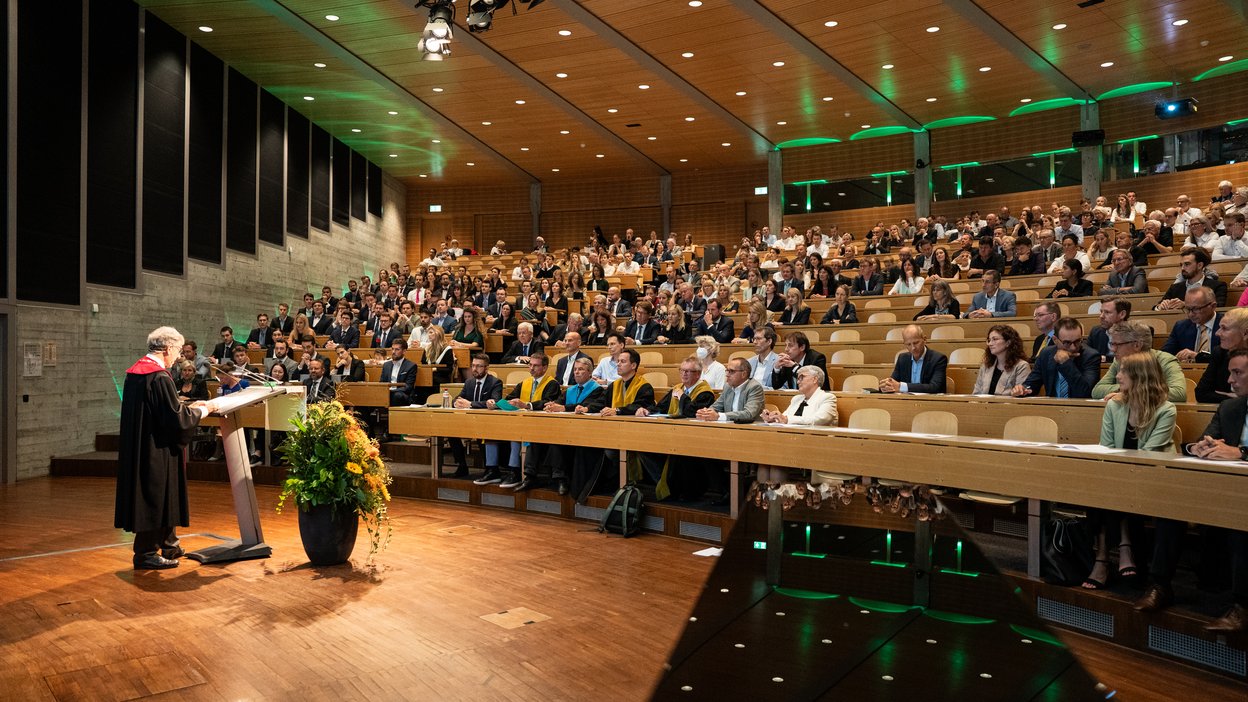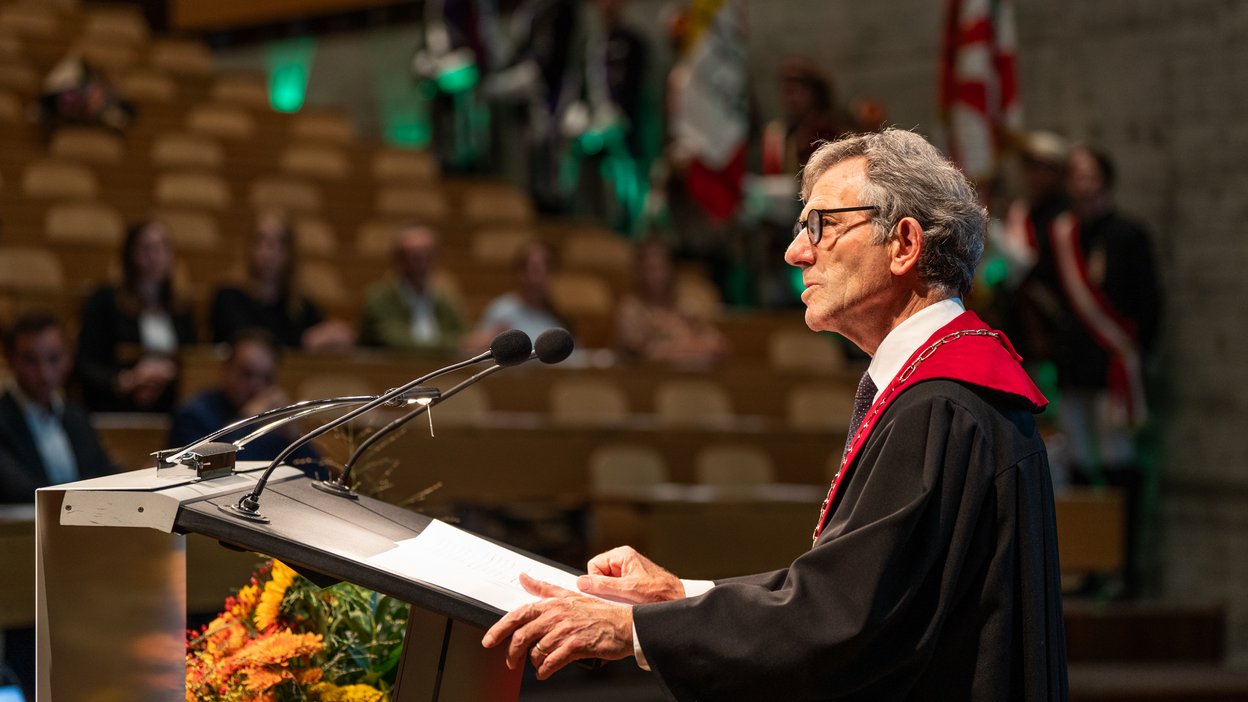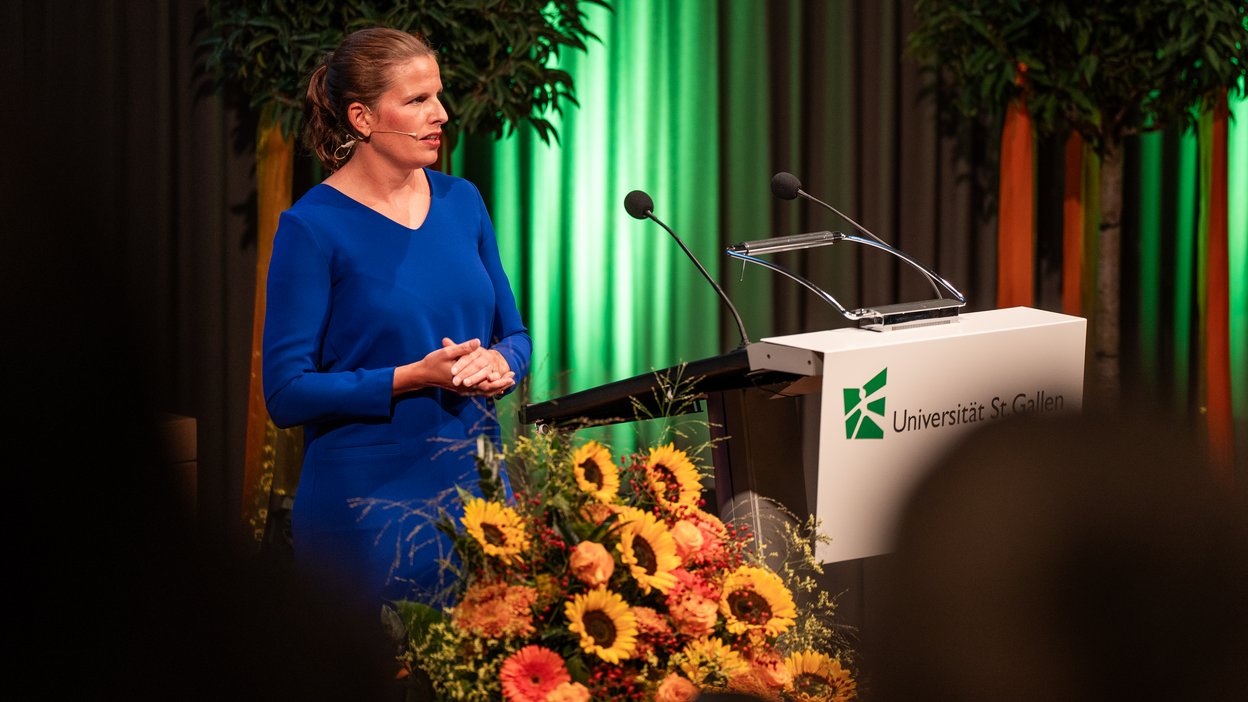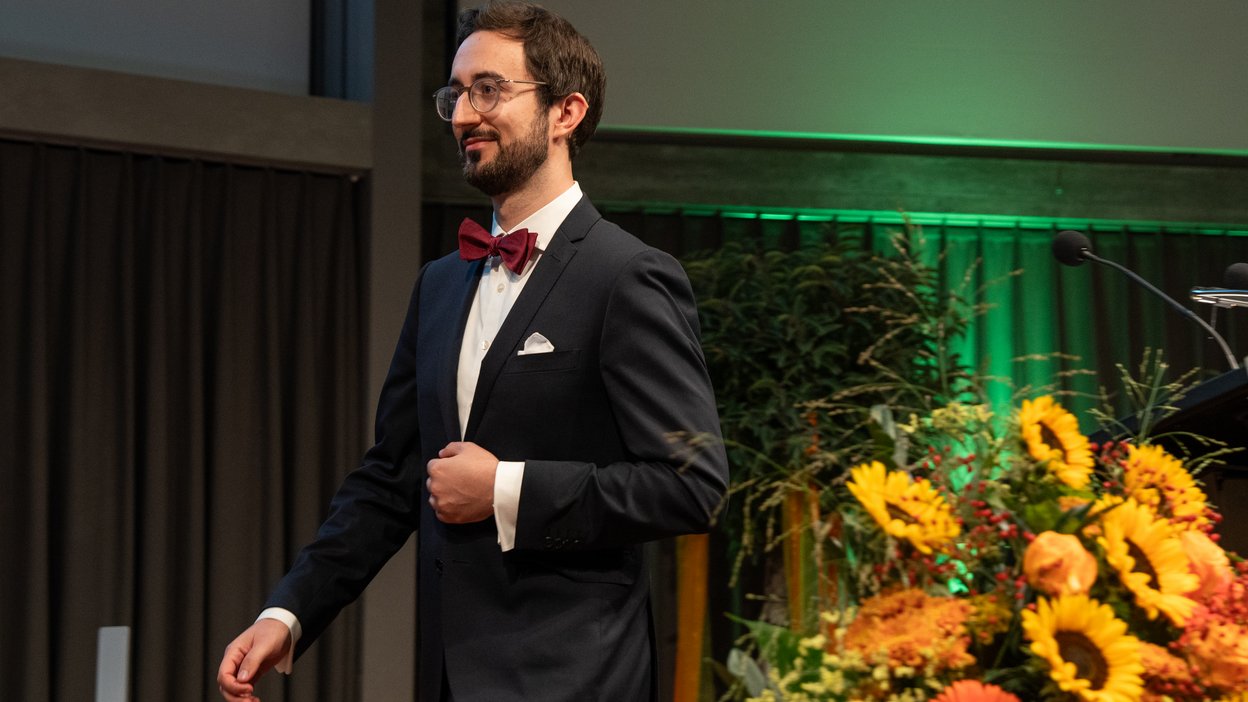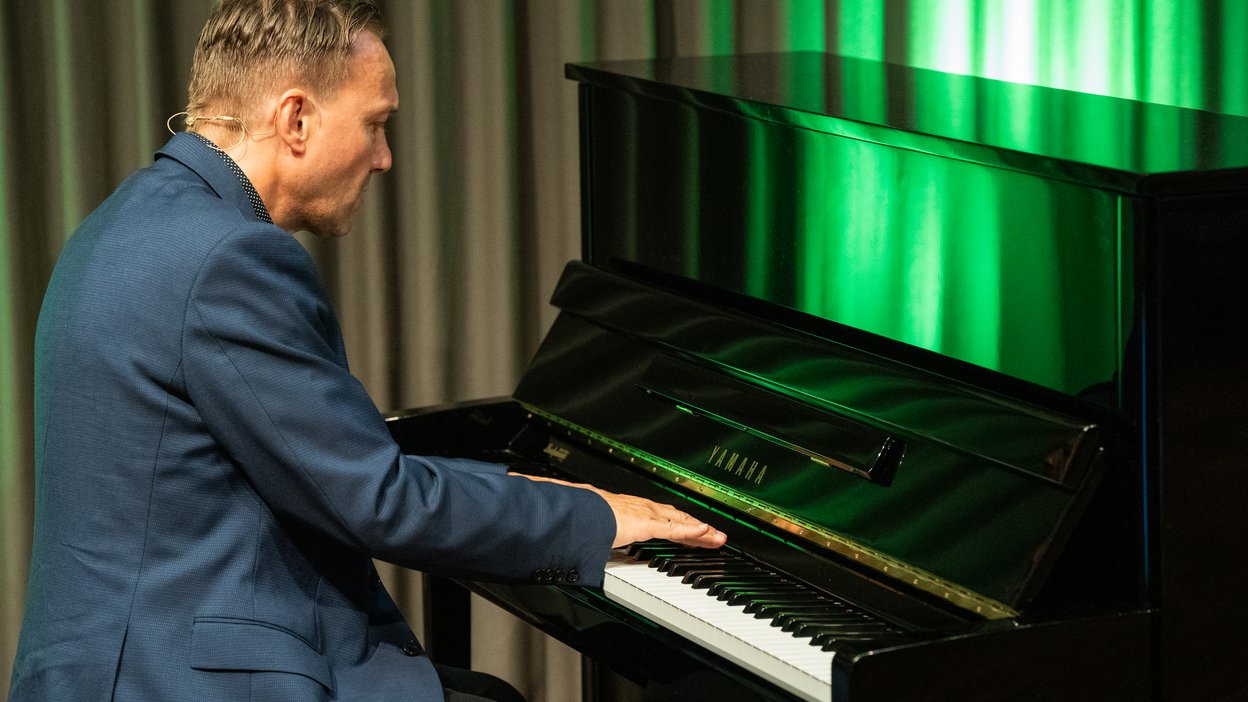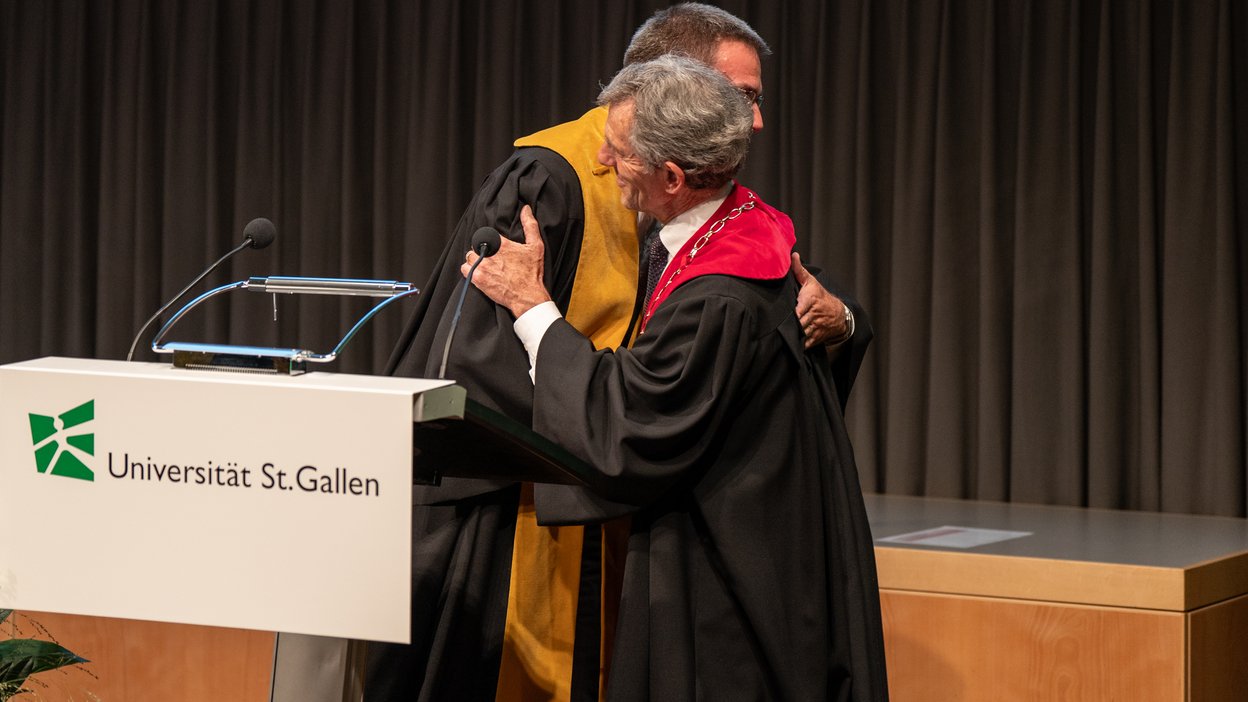Campus - 19.09.2023 - 12:00
55 New Doctors at HSG
At the start of the autumn semester on September 18, 2023, 55 doctoral candidates received their diplomas at HSG. What certainly hasn't been lacking during their doctoral journey is a passion for their work. In his address, President Bernhard Ehrenzeller talked about the internal forces driving these individuals.
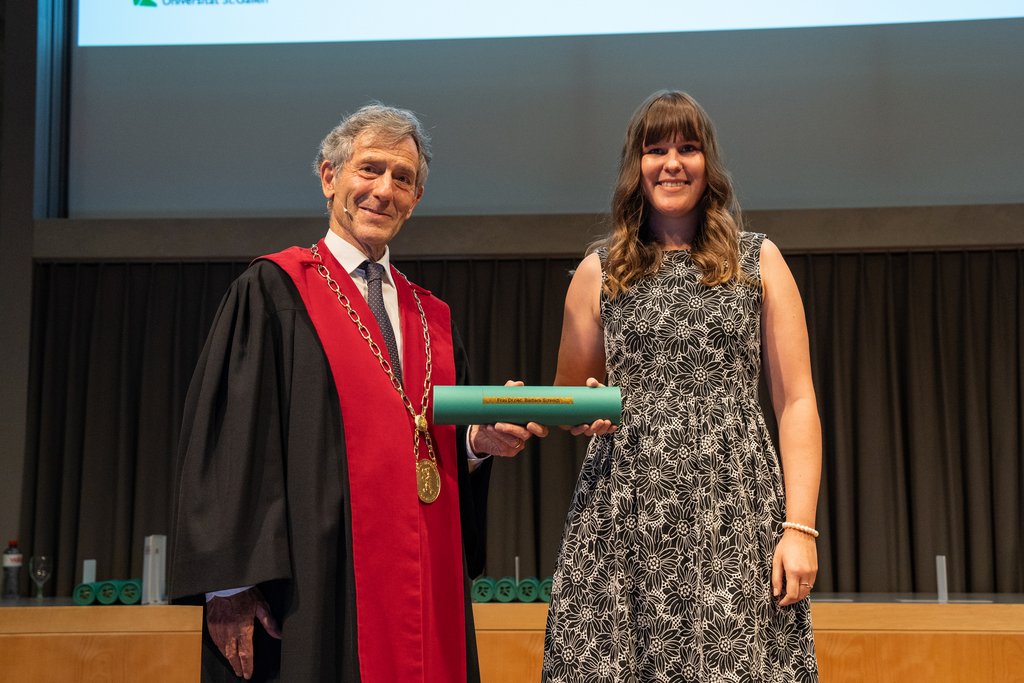
At the start of the autumn semester on September 18, 2023, 55 doctoral candidates received their diplomas at HSG.
During the doctoral phase of life, research often takes precedence, pushing world events such as the unrest in France's suburbs, the fall of Donald Trump, or the return of summer heat into the background. And for good reason: what distinguishes successful scientists and researchers is their passion for their own projects. President Prof. Dr. Bernhard Ehrenzeller began his speech on "Suffering and Passion" with a reference to a passage from "La recherche de l'absolu" ("The Search for the Absolute") by French novelist Honoré de Balzac:
"Balthazar was so engrossed in science that neither France's misfortune nor Napoleon's initial downfall nor the return of the Bourbons could divert him from his occupation. He was neither a husband, nor a father, nor a citizen; he was only a chemist."
Exploring One's Limits
Thanks to a passionate inner drive, the doctoral phase can become a time of exploration in multiple ways – "an exploration of the boundaries of one's knowledge and the boundaries of the discipline, but also an exploration of one's intellectual performance and endurance limits," explained the president. The doctorate captures scientists, "a bit like when you're newly in love." However, passion doesn't come randomly; it derives from "suffering," with "passion" originating from the Latin word "pati." The pursuit of knowledge can eventually lead to falling from Cloud 9, just as it has for generations of researchers before.
Since the Renaissance, medical professionals have examined the suffering of scholars, from melancholy to physical ailments. A Swiss expert in this niche field was Samuel-Auguste Tissot, who wrote in 1768 "De la santé des gens de lettres," on the health of intellectuals, recalled President Bernhard Ehrenzeller. Therefore, the advice from friends and parents to doctoral candidates to get some fresh air or engage in more physical activity could have been more valuable.
Most of the graduates will direct their energies towards new endeavours, often moving away from primary involvement in academia. "Wherever life takes you, I am convinced that you will develop the same fire for your work as you once felt for your doctoral studies," President Bernhard Ehrenzeller conveyed to the new doctors in their closing remarks. "As with your now soon-to-be-past career stage, developing a healthy amount of passion applies to the next one."
Lifelong Learning
The keynote address was delivered by HSG alumna Dr. Sina Wulfmeyer. She is the Chief Data Officer (CDO) of the Zurich-based software company Unique AG and a lecturer in the CAS program "Big Data & AI" at the University of St.Gallen. In her speech titled "From Academics to AI: My Journey," Sina Wulfmeyer reflected on her career path from academia to the world of Artificial Intelligence. She succeeded in this transition thanks to her adaptability and commitment to "lifelong learning." Namely, remaining curious and actively embracing new challenges. The alumna encouraged the graduates to stay curious, to seek new challenges and to stay courageous.
13 Awardees, 55 Doctors
In the autumn semester, several awards are traditionally presented at the doctoral ceremony:
- The "Dr. Peter Werhahn Prize" for outstanding scientific work in business administration and philosophy of science was awarded to Lukas Falcke.
("Collaborative Innovation in the Context of Emerging Digital Technologies and the Fight against Climate Change") - The "Amicitia Prize" for the best doctorate in economics was awarded to Martin Mailänder and Marius Schmid.
("Audit and the Media – Negative Publicity and its Influence on Audit Quality" /
"Investigating B2B Innovation Platforms from a Complexity Perspective: A Simulation-based Approach") - The "Professor Walther Hug Prize 2023" for the best legal dissertations at Swiss universities was awarded to Alfonso Christian Hophan and Milivoje Mitrovic.
("Formation and Development of Water Rights Between Private Law and Public Law – with Special Consideration of the Usage Rights of Riparian Owners According to Art. 170 EG ZGB of the Canton of Glarus" /
"Unilateral Amendment Clauses in General Terms and Conditions") - The "Walther Hug Prize St.Gallen" honors the best legal dissertation, and the "Rudolf Mäder Prize" is awarded for the best legal or political science doctorate. The president congratulated graduate Nadia Kuzniar on both awards.
("Complicity and Participation in Civil Law – A Comparative Legal Analysis") - The prize for the doctoral program in Economics and Econometrics and the doctoral program in Finance (GPEF) for the best dissertation was awarded to the five graduates: Benedikt Ballensiefen, Aurélien Sallin, Mathis Rudolf Werner Mörke, Fabricius Somogyi, and Hannah Winterberg.
("Essays on short-term funding markets" /
"Minorities in Schools – Three Empirical Essays in Education Economics" /
"Essays in Derivatives Markets" /
"Essays on Frictional Financial Markets" /
"Essays on the European financial market structure and the monetary union") - The SMIF Prize for the doctoral program in Economics and Finance for the best chapter in Quantitative Finance and Economics was awarded to Cédric Müller and Jeannine Polivka, who both also graduated at the ceremony.
("Essays on Behavioral Finance and Machine Learning" /
"Structural Volatility Modeling")
The 55 doctoral candidates received their diplomas in the areas:
- 30 in business administration,
- 7 in social sciences,
- 3 in law,
- 1 in political science,
- 9 in economics and finance,
- 5 in finance.
Dr. Hans-Joachim Knopf, pianist and head of the Methodenschule at HSG, provided musical accompaniment for the doctoral ceremony.
Images: Photo Lautenschlager GmbH
